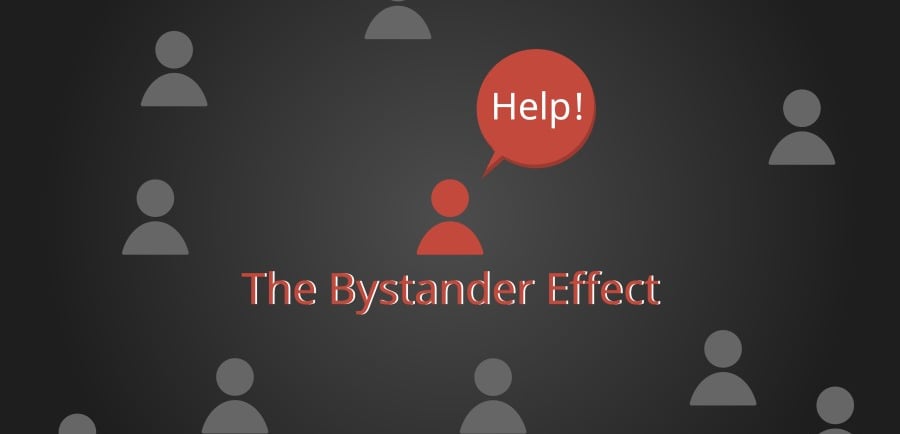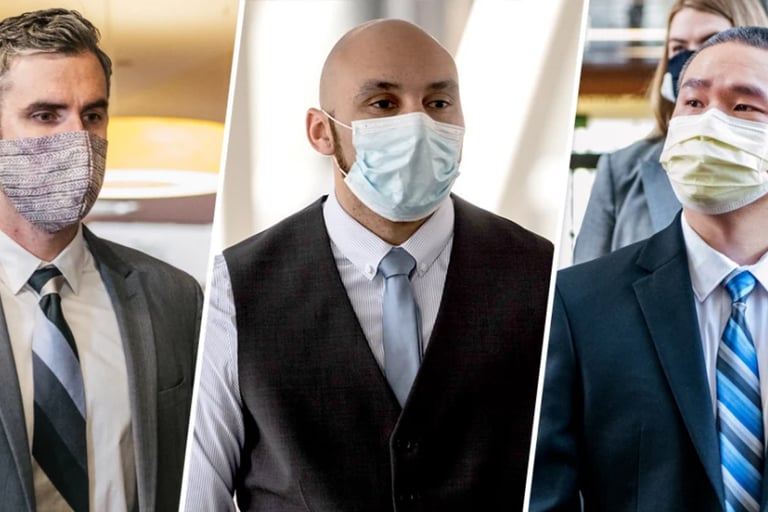Bystander or Upstander: Which one are you?
The most severe pain I've ever felt or witnessed is the pain caused by people who stood by and watched me or others suffer. In my nonprofit for girls in foster care, many were victims of sexual abuse. However, it wasn't the abuse that caused them to break down in tears, even years after living through abusive events. It was the fact that there were people who knew about the abuse (many times the mother) who did nothing to stop it. The feeling of being neglected and rejected by the people they trusted made them cry.
Kenadie Cobbin-Richardson
11/19/20243 min read


The most severe pain I've ever felt or witnessed is the pain caused by people who stood by and watched me or others suffer. In my nonprofit for girls in foster care, many were victims of sexual abuse. However, it wasn't the abuse that caused them to break down in tears, even years after living through abusive events. It was the fact that there were people who knew about the abuse (many times the mother) who did nothing to stop it. The feeling of being neglected and rejected by the people they trusted made them cry.
I was the victim of severe workplace harassment in my own life, and I wasn't shy about telling people what I was going through. Yet, no one with the power to stop it stepped forward. That hurt me the most. Not the harassment but feeling unprotected and vulnerable . . . abandoned. I realize that I am not made that way. If there is ever something that I can do, I will not hesitate to act. I feel responsible to act, and I don't even have to know you personally.
Unfortunately, many people have no problem not intervening, even when the situation is life and death. Just ask Minneapolis police officers J. Alexander Kueng, Thomas, Lane, and Tou Thao. They were all convicted of depriving George Floyd of his civil rights while acting under government authority when they failed to give him medical aid.
Former Minneapolis Police Officers Thomas Lane, J. Alexander Kueng, and Tou Thao. (Getty Images file)
Kueng and Thao were convicted of not intervening to stop their fellow officer, Derek Chauvin, from using excessive force. Had they intervened and stopped Chauvin from killing Floyd, they could have been shunned by their fellow officers. While being isolated or canceled by your peers is a bad thing, I believe a person losing his life so you can stay likable at work is incomprehensible. These three officers still suffered as they lost their job and now face prison sentences.
The Bystander Effect
What's the message? Get active. Do something. When you are in a situation that requires a response, do it. Don't wait for someone else. If you think someone other than you should act, you may be influenced by the "bystander effect." The bystander effect occurs when the presence of others discourages an individual from intervening. The greater number of bystanders, the less likely it is for any one of them to provide help. People are more likely to take action in a crisis when few or no other witnesses are present.
How Can You Overcome the Bystander Effect?
To overcome the bystander effect, it helps to cultivate qualities like empathy. Try to see the situation from the victim's perspective. Worry less about the consequences of helping and more about what you would want for yourself or someone you love in that situation.
Be an Upstander
Good people can be complicit in bad behavior (Silence is agreement). Someone who speaks up is called an "upstander." Upstanders have confidence in their judgment and values and believe their actions will make a difference. They are likely to do the right thing because they take time to stop and think before acting.
How to be an Upstander
1. Notice what is happening around you. Be aware of other people and situations. Sometimes you are unsure if a problem actually exists. Trust your instincts. If the behavior worries you, intervention is necessary.
2. Identify when it's appropriate to intervene. Now that you've identified that a problem exists, the next step is to decide when it's appropriate to intervene. Someone else may be the person who needs to take direct action, but you can help put the right solutions in place by identifying problems.
3. Know how to intervene. This step involves acquiring the skills and developing strategies that lead to effective interventions. Knowing how to intervene with caution effectively improves our ability and willingness to intervene. Some standard techniques include (1) Distract – create a distraction or redirect the focus of those involved to let the situation cool down; (2) Direct – call it as you see it. Confront the harmful behavior directly in a safe, respectful manner. Or it may be best to pull the person or victim aside and "check in;" (3) Delegate – Ask others to get involved to help take charge of the situation.
4. Take action to intervene. If you see something, say something.
Decide to become an upstander instead of a bystander. You literally may save a life.
For more words related to diversity, equity, and inclusion, download Kengen's DEI Dictionary: http://ow.ly/cOtz50HR431





